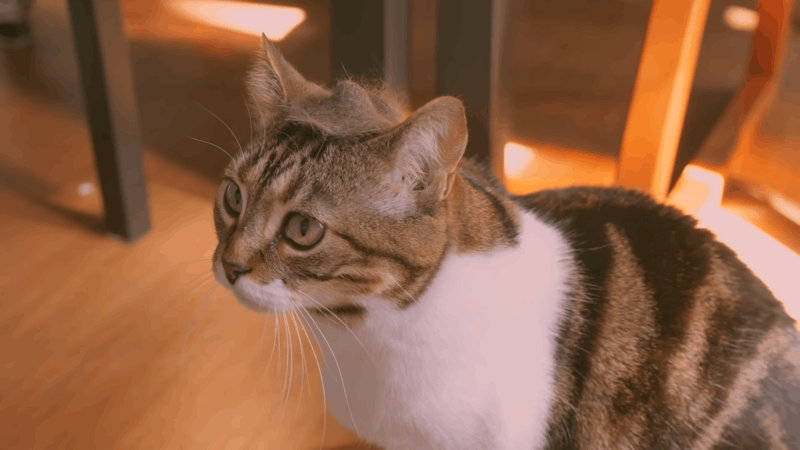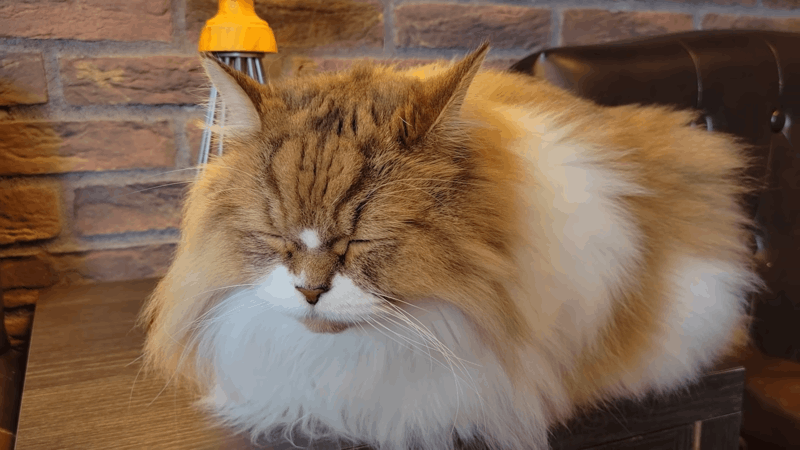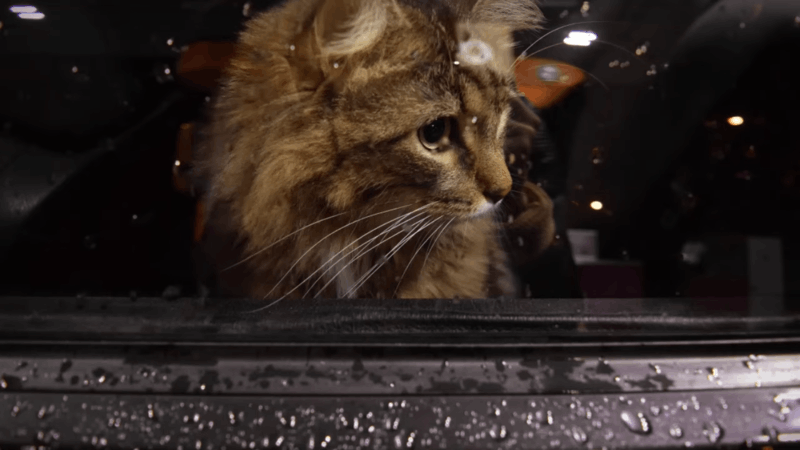No products in the cart.
Among pet owners seeking natural solutions for their feline companions, the question of CBD for cats’ appetite has gained considerable attention. As responsible cat owners, we acknowledge the significance of sustaining a robust appetite in our cats to uphold their holistic well-being.
In this blog, we will discover how CBD affects cats’ appetites, does CBD affect appetite in cats, and does CBD cause loss of appetite. Additionally, we will explore its potential effects and the precautions to consider before incorporating CBD into our cats’ routine.
What Is CBD for Cats Appetite?
CBD is a natural compound derived from the hemp plant. It is known for its potential therapeutic properties and is gaining popularity as a supplement for pet wellness, including cats. CBD interacts with the endocannabinoid system, which plays a crucial role in regulating various physiological processes, including appetite.
CBD for cats’ appetite refers to the use of CBD products specifically formulated for felines to potentially support and enhance their appetite. These products are often provided orally and come in the form of CBD oil, treats, or capsules. By interacting with the endocannabinoid system, CBD may influence appetite-related mechanisms in cats and potentially stimulate their appetite. You could discover even more outstanding CBD pet items at Pet CBD Club.
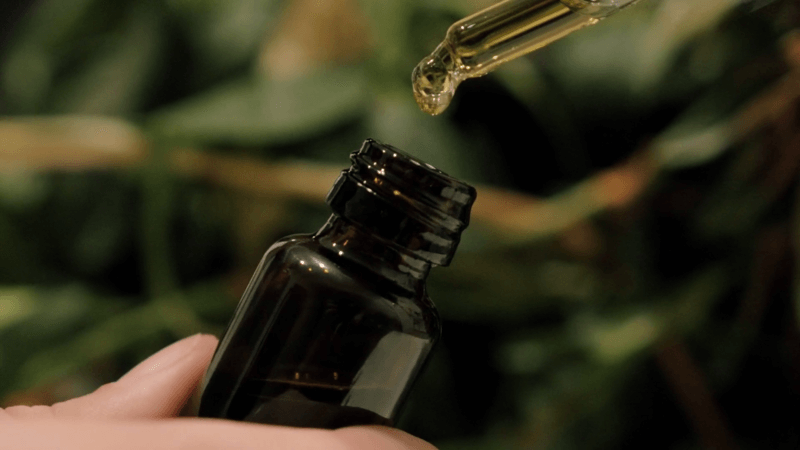
The Importance of a Healthy Appetite in Feline
A healthy appetite is crucial for the overall well-being of cats. Here are a few reasons why a healthy appetite is important:
- Nutrition: Cats with a healthy appetite get the right amount of nutrients, including proteins, lipids, vitamins, and minerals. These nutrients are crucial for preserving perfect health, promoting growth, and supplying energy.
- Weight management: An appropriate appetite helps regulate a cat’s weight. Overeating or under-eating can lead to weight-related issues, such as obesity or malnutrition. Keeping a healthy weight is essential for avoiding numerous health issues and extending life.
- Immune function: Adequate nutrition obtained through a healthy appetite supports a cat’s immune system. Proper nourishment helps strengthen the immune response, enabling cats to fight off infections, and diseases, and recover from illnesses more effectively.
- Mental well-being: Cats with a healthy appetite often display better mental well-being. Enjoying meals and experiencing satisfaction from eating can contribute to their overall happiness and contentment.
- Early detection of health issues: Changes in appetite can serve as an indicator of underlying health problems. A sudden loss of appetite or excessive hunger may signal an underlying condition that requires veterinary attention. Monitoring a cat’s appetite can help detect potential health issues early on.
Maintaining a healthy appetite in cats involves providing balanced and nutritious meals, ensuring a comfortable eating environment, and addressing any potential health concerns promptly.
Factors That Can Impact a Cat’s Appetite
When it comes to a cat’s appetite, several things can influence whether they’re feeling hungry or not. Here are some common factors to consider:
- Health conditions: Cats experiencing health issues such as dental problems, gastrointestinal disorders, hormonal imbalances, or pain may have a reduced appetite. These conditions can make eating uncomfortable or lead to a loss of appetite.
- Age: Cats’ appetites can change as they age. Older cats may experience a decline in appetite due to factors such as dental issues, reduced metabolism, or underlying health conditions associated with aging.
- Stress and anxiety: Cats are sensitive creatures, and stressors such as changes in the environment, the introduction of new pets, loud noises, or separation anxiety can affect their appetite. Stress can lead to a decreased appetite or selective eating.
- Medications: Certain medications or treatments may cause a temporary loss of appetite in cats. Chemotherapy, pain medications, or antibiotics can have an impact on their desire to eat.
- Environmental factors: A cat’s appetite can be influenced by its immediate environment. Factors like a change in the feeding routine, the location of the food bowls, or the presence of other animals can affect their appetite.
Common Appetite-Related Issues
Anorexia: Anorexia refers to a complete loss of appetite in cats. It can be a sign of a deeper health issue, a reaction to stress, or a result of environmental changes. As it might result in malnutrition and further health issues, anorexia should be addressed seriously.
- Picky eating: Some cats exhibit picky eating habits, being selective about their food preferences. They may refuse certain types of food or show disinterest in their meals, which can lead to nutritional deficiencies if not addressed.
- Obesity: While not directly an appetite-related issue, obesity can develop when a cat consistently overeats or has an excessive appetite. Obesity in cats can lead to various health problems and should be managed through portion control and a balanced diet.
- Inflammatory Bowel Disease (IBD): IBD is a condition that results in inflammation of the digestive system. IBD in cats can cause weight loss, vomiting, diarrhea, and decreased appetite.
- Dental problems: Cats with dental problems like tooth decay, gum disease, or oral pain may find it harder to eat and end up having less appetite as a result.
Does CBD Affect Appetite in Cats?
The impact of CBD on appetite in cats is still an area of ongoing research. There are few scientific studies explicitly looking at how CBD affects feline hunger, despite some anecdotal accounts suggesting that it can increase cats’ appetites. Therefore, more research is needed to determine the precise impact of CBD on feline hunger.
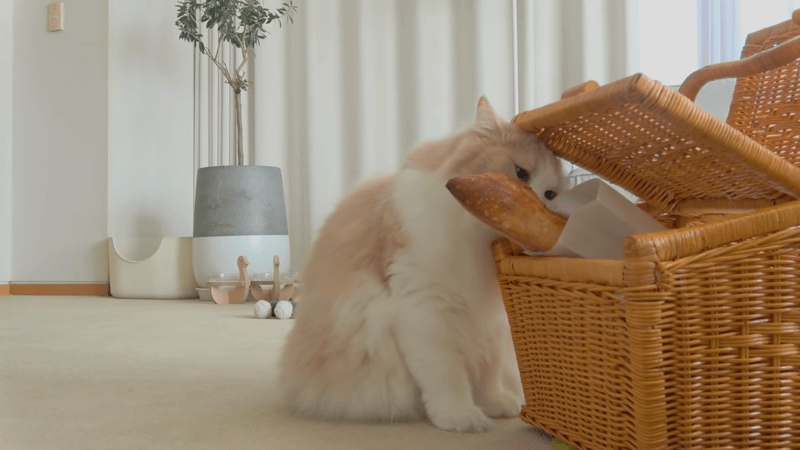
CBD’s Potential Effects on The Appetite System
CBD may have potential effects on appetite in cats, but the specific impact can vary. While CBD itself may not directly increase appetite, it could indirectly influence appetite by addressing underlying factors such as pain, inflammation, or anxiety that may be suppressing appetite. However, individual responses can differ, and more research is needed to fully understand the extent of CBD’s effects on appetite in cats.
How Long It Takes for CBD to Affect a Cat’s Appetite?
In general, the time it takes for CBD to affect a cat’s appetite can vary. Some cats may show changes in appetite relatively quickly after CBD administration, while others may take longer to respond. It is important to be patient and allow time for the CBD to be absorbed into their system and interact with their endocannabinoid system.
The specific dosage, form of CBD products for cats (such as oil, treats, or capsules), and the cat’s metabolism can also influence the onset of effects. Additionally, the underlying cause of appetite changes, such as pain, inflammation, or anxiety, can impact how quickly CBD may help improve appetite.
Monitoring your cat’s response to CBD over a period of days or weeks is recommended. Observe any changes in their eating patterns, behavior, or overall well-being. If you’re not seeing the desired results or have concerns, consulting with a veterinarian is always advisable.
It’s important to note that individual cats may have different responses to CBD, and there is no specific timeframe that universally applies to all cats.
Does CBD Cause Loss of Appetite?
Based on current knowledge and available scientific research, CBD is not commonly associated with causing a loss of appetite in cats. Although the precise effects on feline appetite are still being researched, CBD is actually frequently evaluated for its potential to boost animal appetite.
While CBD interacts with the endocannabinoid system, which plays a role in regulating appetite, the mechanisms involved in appetite regulation can be complex and can vary between individuals. However, loss of appetite is generally not reported as a common side effect of CBD use in cats.
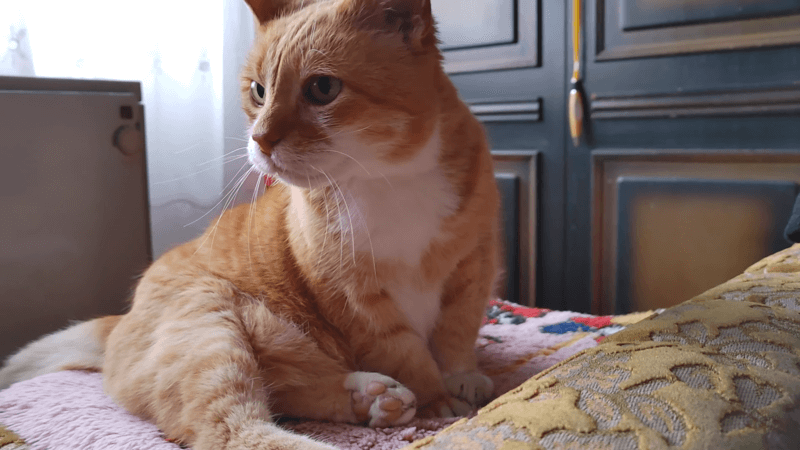
CBD Side Effects on Cats’ Appetite
CBD is generally considered safe for cats when administered in appropriate doses. However, individual cats may react differently to CBD, and side effects are possible, although they are typically mild.
Regarding appetite, while some cat owners have reported increased hunger or improved appetite after giving their cats CBD, the scientific evidence supporting these claims is currently limited. Cats may also exhibit no change in appetite or experience a reduction in appetite when using CBD. It’s essential to closely monitor your cat’s response to CBD and consult with a veterinarian before introducing any new supplements to their routine.
If you notice any concerning changes in your cat’s appetite or overall behavior after administering CBD, it is advisable to discontinue use and consult with a veterinarian for further guidance.
Precautions Before Using CBD for Cats
Before using CBD for cats, it is important to take certain precautions to ensure their safety and well-being. Here are some key precautions to consider:
- Consult with a veterinarian: Before introducing CBD to your cat’s routine, consult with a veterinarian who is knowledgeable about CBD use in pets. They can provide guidance, consider your cat’s specific health condition, and advise on the appropriate dosage and administration method.
- Quality and reputable products: Only use CBD products that are specifically formulated for pets and come from reputable manufacturers. Look for products that have been tested by third-party laboratories for purity, potency, and contaminants.
- THC content: Ensure that the CBD product you choose has negligible THC content. THC (tetrahydrocannabinol) is a psychoactive compound found in cannabis that can be harmful to cats. CBD products derived from hemp typically contain very low levels of THC (0.3% or less), which is unlikely to cause intoxication.
- Start with low doses: Begin with a low dosage and observe how your cat responds. Each cat may have a different sensitivity to CBD, so it’s important to start with a conservative dose and gradually increase it if needed.
- Monitor for adverse effects: Keep a close eye on your cat after administering CBD. Watch for any signs of adverse reactions, such as excessive sedation, gastrointestinal upset, or changes in behavior. If you notice any concerning effects, discontinue CBD use and consult your veterinarian.
- Consider the cat’s overall health: CBD may interact with certain medications or underlying health conditions. Inform your veterinarian about any medications or health issues your cat has before using CBD to ensure there are no potential contraindications.
Conclusion
When it comes to using CBD for cats’ appetite, there’s still a lot we need to learn. While some cat owners have shared their experiences with CBD increasing their cats’ appetites, there hasn’t been enough scientific research focused on this specific aspect. It’s always a good idea to talk to a veterinarian before trying CBD for your cat’s appetite and to keep a close eye on how they respond. Every cat is unique, so monitoring their well-being and consulting with a professional will help you make the best decisions for their health.
I am Nelson Cooper, I pursue my passion for writing and my belief is that cats love humans. I enjoy traveling and have a deep appreciation for the beauty of nature, as well as a soft spot for animals, particularly cats.

